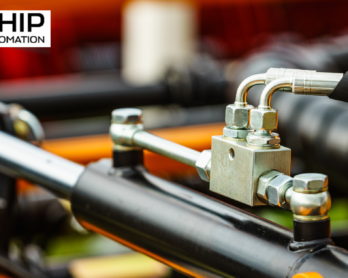In today’s industrial landscape, optimizing combustion efficiency has become a top priority for businesses seeking to reduce emissions, enhance energy efficiency, and comply with environmental regulations. One tool that plays a crucial role in this process is the MRU gas analyzer. These advanced devices offer accurate and real-time analysis of combustion gases, enabling businesses to fine-tune their processes and achieve optimal efficiency. In this article, we will explore the significant role of MRU gas analyzers in optimizing combustion efficiency and their impact on industrial operations in the United States.
Understanding Combustion Efficiency
Before delving into the role of MRU gas analyzers, it’s important to understand combustion efficiency and its significance. Combustion is a process involving the burning of fuels, such as natural gas, coal, or oil, to generate heat or power. Combustion efficiency refers to the ability to extract the maximum amount of energy from a fuel while minimizing waste products, such as carbon monoxide (CO), nitrogen oxides (NOx), and unburned hydrocarbons. By optimizing combustion efficiency, businesses can reduce fuel consumption, lower emissions, and save costs.
The Role of MRU Gas Analyzers
- Real-Time Analysis: MRU gas analyzers provide real-time analysis of combustion gases, allowing businesses to monitor and adjust their combustion processes promptly. These devices measure critical parameters such as oxygen (O2), carbon dioxide (CO2), carbon monoxide (CO), and nitrogen oxides (NOx). By continuously monitoring these gases, businesses can detect any inefficiencies or deviations from optimal combustion conditions and take corrective actions in real-time.
- Combustion Optimization: MRU gas analyzers play a vital role in optimizing combustion efficiency by helping businesses achieve the ideal air-to-fuel ratio. By analyzing the composition of flue gases, these analyzers provide insights into the combustion process and help operators adjust the fuel and air supply accordingly. This optimization minimizes energy losses, reduces pollutant emissions, and ensures maximum heat transfer, resulting in improved combustion efficiency.
- Emission Reduction: MRU gas analyzers aid businesses in reducing harmful emissions by monitoring and controlling combustion processes. These analyzers detect and quantify pollutants such as CO, NOx, and SO2, allowing operators to identify sources of high emissions and implement corrective measures. By maintaining optimal combustion conditions, businesses can minimize environmental impact and comply with stringent emission regulations in the United States.
- Efficiency Monitoring: MRU gas analyzers enable businesses to continuously monitor combustion efficiency parameters such as excess air, stack temperature, and flue gas losses. By tracking these parameters, operators can identify areas of energy wastage or inefficiency. This information helps businesses optimize combustion processes, reduce fuel consumption, and increase overall energy efficiency, leading to significant cost savings.
- Preventive Maintenance: MRU gas analyzers also contribute to preventive maintenance practices by providing valuable data on the performance and condition of combustion systems. By regularly analyzing combustion gases, businesses can detect any abnormalities or potential issues, such as burner malfunctions or fouled heat exchangers, before they lead to costly breakdowns or inefficient operations. This proactive approach helps minimize downtime, extend equipment lifespan, and optimize combustion efficiency in the long run.














